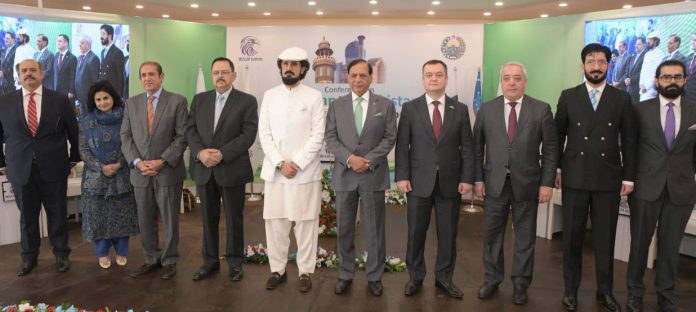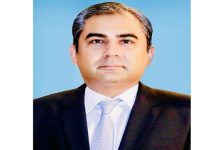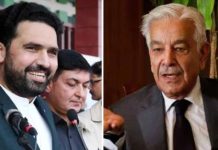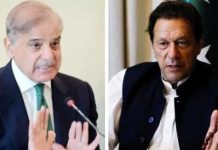General Ehsan stressed that Pakistan must further engage with Central Asian republics and extend its outreach to the Caucasus region, particularly Azerbaijan; Dr. Ziyo emphasized the importance of strengthening historical, cultural, and scientific cooperation between the two countries
Ansar Mahmood Bhatti
ISLAMABAD: A seminar focusing on the shared cultural and historical linkages between Pakistan and Uzbekistan was jointly hosted by the Embassy of Uzbekistan in Islamabad and the MUSLIM Institute. The event brought together scholars, diplomats, policymakers, and academics from both countries in an effort to explore avenues for deeper cooperation.
General (retd) Ehsanul Haq, who graced the occasion as the chief guest, underscored Pakistan’s deep regard for its fraternal ties with Uzbekistan. He recalled his personal experiences of visiting Uzbekistan and expressed satisfaction over the growth of bilateral connectivity. “It had been my wish for many years that Pakistan and Uzbekistan should have direct air links. Today, I am pleased to note that flights now connect Tashkent with both Islamabad and Lahore,” he said, highlighting that the Islamabad–Tashkent route is the shortest air corridor between the two nations.
General Ehsan stressed that Pakistan must further engage with Central Asian republics and extend its outreach to the Caucasus region, particularly Azerbaijan, with whom Pakistan enjoys excellent relations. He described Central Asia as an important bridge between South Asia, the Middle East, and Europe, adding that cultural diplomacy, people-to-people exchanges, and economic partnerships could pave the way for regional prosperity.
Among the distinguished speakers was Dr. Azamat Ziyo, Senator and academician from Uzbekistan, who also serves as Director of the Institute of History at the Academy of Sciences of Uzbekistan. Leading an Uzbek academic delegation to Pakistan, Dr. Ziyo emphasized the importance of strengthening historical, cultural, and scientific cooperation between the two countries. He praised the MUSLIM Institute and the Uzbek Embassy for arranging the seminar, describing it as a valuable platform for dialogue and collaboration.
Dr. Ziyo also expressed his gratitude for the warm hospitality extended to him and his entourage during their stay in Pakistan. Speaking briefly to Daily Islamabad Post, he shared that his delegation would travel to Lahore before returning to Tashkent. “This was my first visit to Pakistan, and I am deeply touched by the warmth and generosity of the Pakistani people,” he said.
Ambassador of Uzbekistan to Pakistan, Alisher Tukhtaev, lauded the role of the MUSLIM Institute in fostering cultural and intellectual dialogue between the two countries. He expressed optimism that ties between Pakistan and Uzbekistan would continue to grow stronger in education, culture, and trade. “Uzbekistan sees Pakistan not only as a partner but also as a brotherly nation with whom we share a rich heritage,” he remarked.
Chairman of the MUSLIM Institute, Sahibzada Sultan Ahmed Ali, in his address, called for establishing a cultural corridor linking Pakistan with Central Asian states. He emphasized that such initiatives would not only preserve shared history but also open new avenues of cooperation in education, arts, and tourism.
Ambassador Sarfraz Ahmed Sipra also addressed the gathering, underscoring the importance of cultural diplomacy in strengthening bilateral relations. Major General (retd) Amir Jaffery, meanwhile, fondly recounted his visits to Uzbekistan and stressed the significance of academic and cultural exchanges in bringing nations closer.
At the conclusion of the seminar, souvenirs were presented to the speakers and distinguished guests as a token of appreciation. The event served as a testament to the centuries-old civilizational links between Pakistan and Uzbekistan and underscored the commitment of both nations to carry forward this legacy into the future.

















